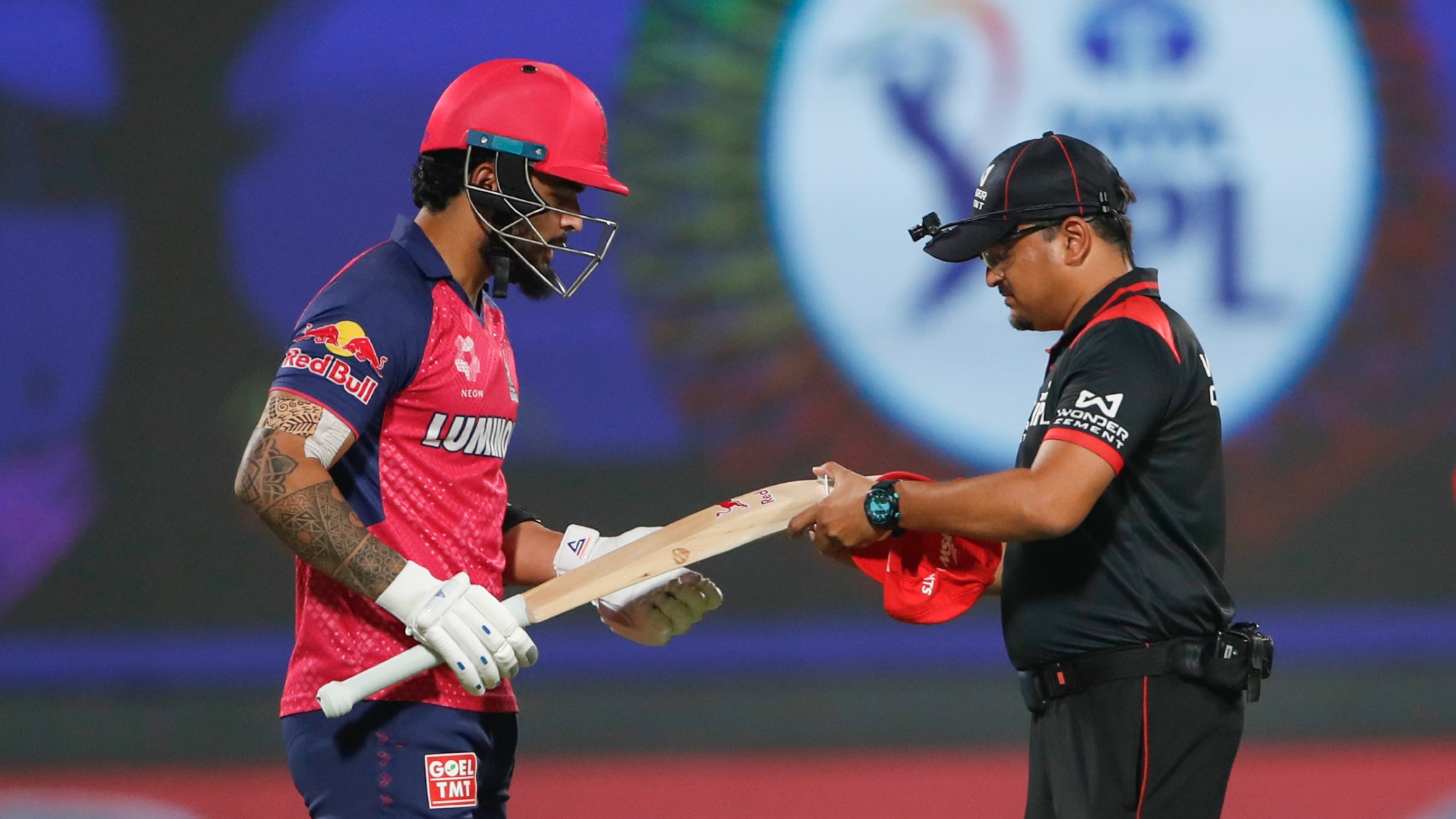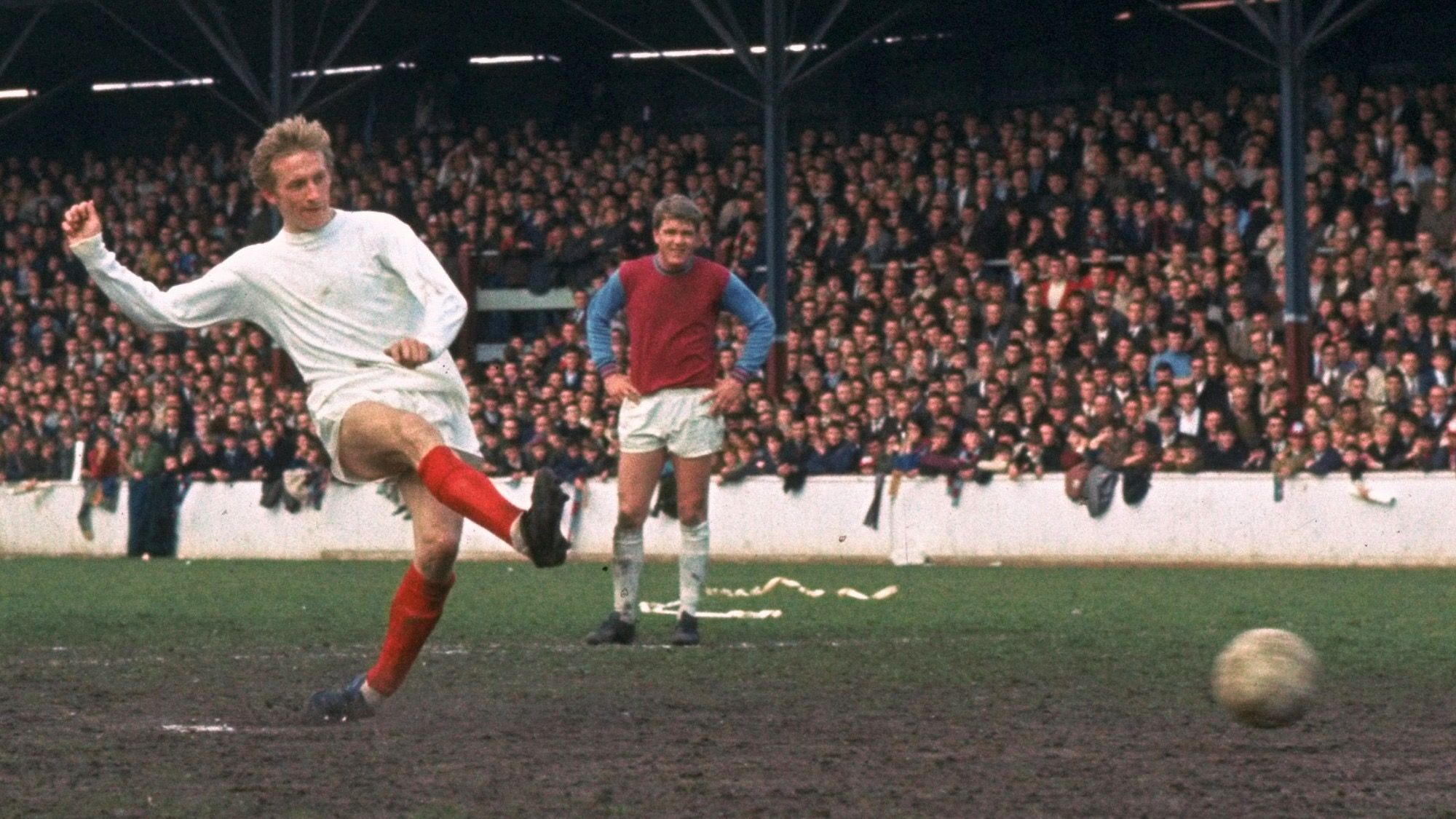Luton Town’s extraordinary ‘resurrection’
The Hatters complete a fairy tale rise from non-league to the Premier League

A free daily email with the biggest news stories of the day – and the best features from TheWeek.com
You are now subscribed
Your newsletter sign-up was successful
Agony and ecstasy; despair and jubilation. No period in the sporting calendar brings with it such a dramatic clash of emotions as the end of the football season. And where despair is concerned, few clubs could have felt it as abjectly this weekend as Leicester City, said James Gheerbrant in The Times. Seven years ago, the “feisty Midlands club wrote the great fairy tale of the Premier League era”, when they won it after starting the season as 5,000/1 outsiders. And in their 2-1 victory over West Ham United on Sunday, they “showed the quality of a side who should have stayed up, comfortably”. But “this season has been a mess” of bad management and poor recruitment. And so it was that their victory over West Ham was not enough. Everton’s 1-0 win over Bournemouth meant that they survived at the expense of the Foxes, who, along with Southampton and Leeds, have now been relegated to the Championship.
But Leicester’s misery was Luton Town’s joy. After 31 years out of the top flight, the club joined Burnley and Sheffield United in being promoted to the Premiership, after beating Coventry in the Championship play-off final at Wembley on Saturday. The match got off to a terrible start for Luton, said Matt Barlow in The Mail on Sunday: shortly after kick-off, captain Tom Lockyer collapsed on the pitch and was rushed to hospital. It was 1-1 at full time so it went down to a penalty shoot-out, only settled – after 11 consecutive successful spot-kicks – when Coventry’s Fankaty Dabo skied his effort into the stands.

To get an idea of the extraordinary feat achieved by Luton, consider the career of Pelly Ruddock Mpanzu, said Tom Allnutt in The Times. When he joined the club in 2013, it was languishing in the fifth-tier Conference (now National) League, losing to the likes of Braintree and Halifax Town. Back then, the team trained on a public field – sessions regularly interrupted by dog walkers. Mpanzu’s first-team debut, away to Staines Town, was witnessed by just 621 people. Next season, the 29-year-old midfielder, the first player in English football history to climb from non-league to the top division with the same club, will be playing in rather grander venues.
The Week
Escape your echo chamber. Get the facts behind the news, plus analysis from multiple perspectives.

Sign up for The Week's Free Newsletters
From our morning news briefing to a weekly Good News Newsletter, get the best of The Week delivered directly to your inbox.
From our morning news briefing to a weekly Good News Newsletter, get the best of The Week delivered directly to your inbox.
Luton’s “resurrection” over the past decade has challenged “the assumptions of the modern game”, said Jim White in The Daily Telegraph. Usually, when teams rise that fast, it’s with the boost of “financial doping”. Yet Luton has never had a “sugar daddy”. On the contrary, the club’s descent to non-league status was the product of decades of financial mismanagement by a succession of “asset-stripping owners”. A consortium of local businessmen took over in 2009 determined that such a situation should never recur. They put stringent financial controls in place and stuck to them. Luton secured promotion despite having one of the lowest playing budgets in the Championship – testament to the shrewd oversight of manager Rob Edwards.

The Championship play-off final has been dubbed the “richest game in football”, said Luke Baker in The Independent. Ahead of the 2020 play-off final, Deloitte calculated that victory would bring somewhere between £135m and £265m to the winning club (depending on whether they stayed up or not). With serious money flooding into Luton’s coffers, there’s one thing they urgently need to do, said Ben Fisher in The Guardian: spend on the “creaking but charismatic” Kenilworth Road stadium. The “Kenny” has a capacity of a mere 10,356, making it the smallest stadium in Premier League history. Even the club’s chief executive, Gary Sweet, has joked about Erling Haaland arriving at its “s**t entrance”.
Just to make it compliant with Premier League regulations, Luton will need to spend at least £10m in the off-season, installing extra TV camera positions, upgrading floodlights, and rebuilding a portion of the stands. And promotion may well accelerate construction of a larger stadium in the town’s centre, with a capacity of around 20,000. But in the meantime, the club’s fans and players are cherishing the memory of Saturday’s victory, said Matt Barlow. Asked how he and his teammates would celebrate that night, a grinning Mpanzu replied: “Tonight? Celebrations Sunday, Monday, Tuesday, Wednesday and Thursday. We’re going to enjoy this one.”
A free daily email with the biggest news stories of the day – and the best features from TheWeek.com
-
 Health insurance: Premiums soar as ACA subsidies end
Health insurance: Premiums soar as ACA subsidies endFeature 1.4 million people have dropped coverage
-
 Anthropic: AI triggers the ‘SaaSpocalypse’
Anthropic: AI triggers the ‘SaaSpocalypse’Feature A grim reaper for software services?
-
 NIH director Bhattacharya tapped as acting CDC head
NIH director Bhattacharya tapped as acting CDC headSpeed Read Jay Bhattacharya, a critic of the CDC’s Covid-19 response, will now lead the Centers for Disease Control and Prevention
-
 The price of sporting glory
The price of sporting gloryFeature The Milan-Cortina Winter Olympics kicked off this week. Will Italy regret playing host?
-
 Hulk Hogan
Hulk HoganFeature The pro wrestler who turned heel in art and life
-
 Cricket's crackdown on 'monster' bats
Cricket's crackdown on 'monster' batsIn the Spotlight Indian Premier League has introduced on-pitch checks to ensure bats meet strict size limits
-
 The Masters: Rory McIlroy finally banishes his demons
The Masters: Rory McIlroy finally banishes his demonsIn the Spotlight McIlroy's grand slam triumph will go down as 'one of the greatest and most courageous victories in the history of golf'
-
 George Foreman: The boxing champ who reinvented home grills
George Foreman: The boxing champ who reinvented home grillsFeature He helped define boxing’s golden era
-
 Why Jannik Sinner's ban has divided the tennis world
Why Jannik Sinner's ban has divided the tennis worldIn the Spotlight The timing of the suspension handed down to the world's best male tennis player has been met with scepticism
-
 When 'a kiss is not a kiss': Spanish football on trial
When 'a kiss is not a kiss': Spanish football on trialTalking Point Luis Rubiales faces up to two-and-a-half years in jail if convicted of sexually assaulting footballer Jenni Hermoso
-
 Denis Law obituary: fond farewell to 'the King of the Stretford End'
Denis Law obituary: fond farewell to 'the King of the Stretford End'In the Spotlight Scottish footballer who was one of Manchester United's 'Holy Trinity' has died aged 84